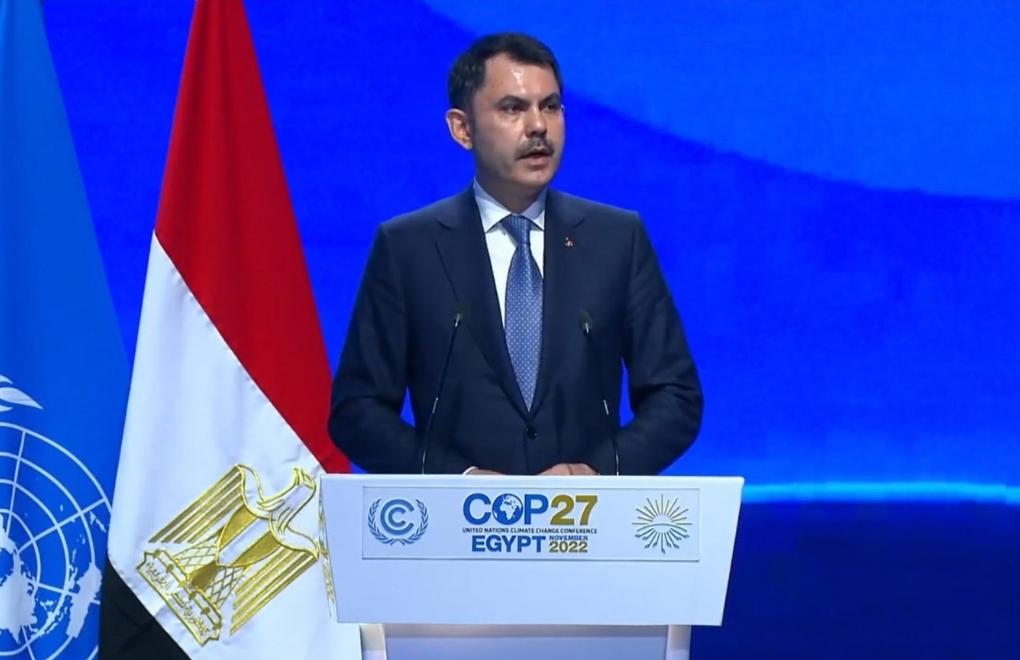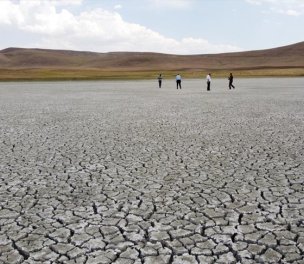Photo: Murat Kurum/Twitter
Click to read the article in Turkish
Türkiye has nearly doubled its emissions reduction target for 2030, the minister of environment, urbanization and climate change announced yesterday (November 15).
"We had stated that we would reduce the emissions, which were expected to be 1.17 billion tons by 2030, by 21 percent. Today, we updated our Nationally Determined Contributions and we increased our reduction target from 21 percent to 41 percent," Murat Kurum said at the United Nations (UN) Framework Convention on Climate Change (COP27) in Sharm El Sheikh, Egypt.
According to Kurum, 2038 should be the country's emission peak year. Forty-one percent means a reduction of around 500 million tons of greenhouse gas by 2030. These new goals are done in consultation with institutions and the private sector, according to minister Kurum.
Despite these efforts, the 41-percent emission reduction target actually means an increase in emissions by over 30 percent, According to several climate organizations.
The declared target is namely a "reduction from the increase," according to WWF Türkiye, SEFİA and Europe Beyond Coal. The organizations emphasized that the peak year should be today, and the reduction should start from today.
Climate crisis and Türkiye
During the previous COP26 held in Glasgow last year, President Recep Tayyip Erdoğan announced that Türkiye will ratify the Paris Agreement and that the country's 2053 net zero emissions. Yet, Türkiye scored "very low" in this year's Climate Change Performance Index (CCPI). The country is in 33rd place in greenhouse gas emissions, 49th place on the energy use list, and 62nd in climate policy in the index.
The Paris Climate accords, enacted in 2015, foresee the goal to keep the temperature increase below 2°C and preferably below 1.5°C. For many countries, the 1.5°C was seen as a totemic red line, however, projections indicate that the temperature might rise to 3.5°C or above.
This would lead to disastrous consequences in Türkiye, already the harshest hit country in the Mediterranean. The nation is already struggling with the effects of climate change, resulting in, among others, massive forest fires and water scarcity. (WM/VK)





